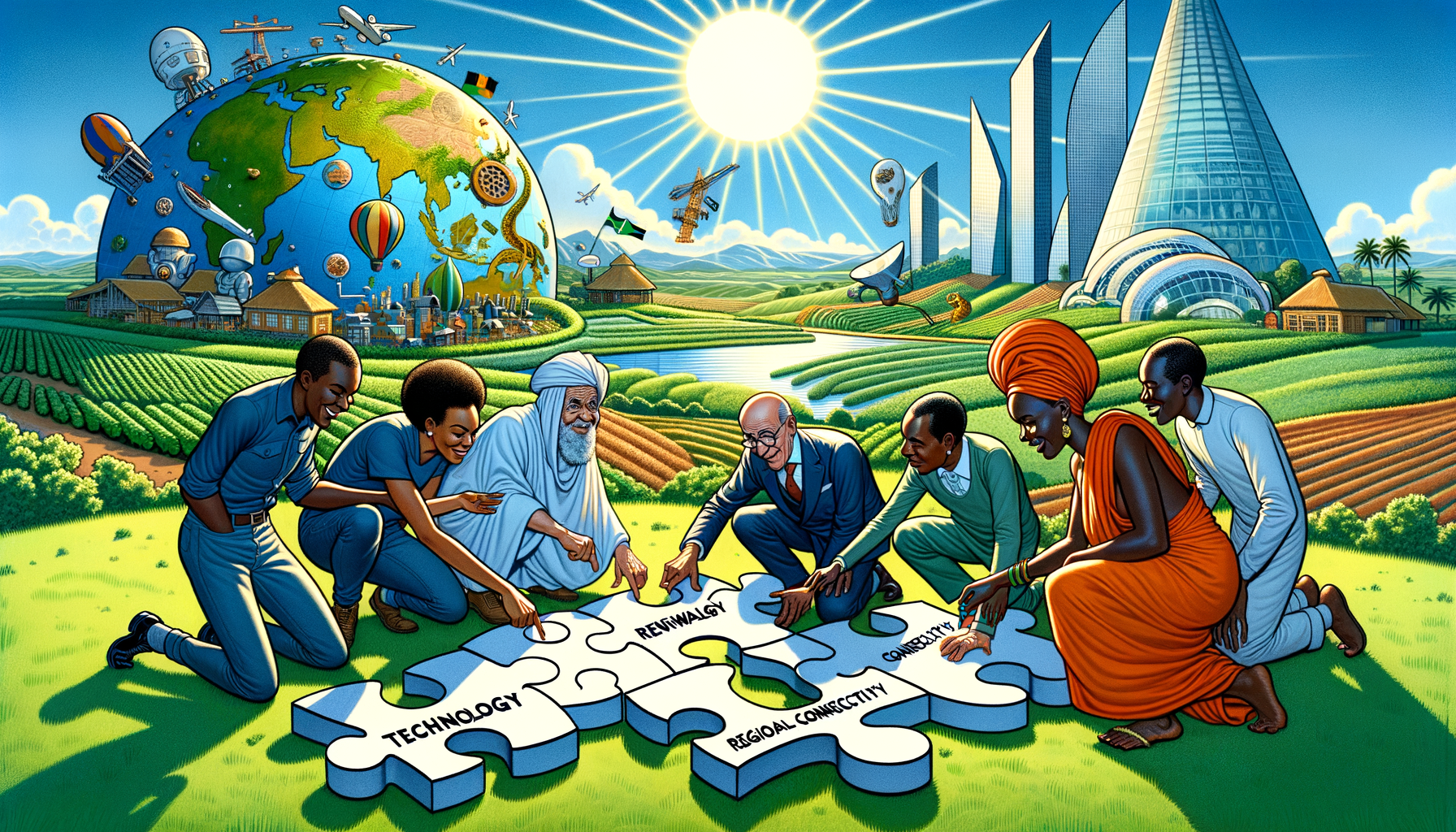African Prospects: Resource Mastery and Redefined Global Roles
2nd March, 2024
Africa stands at a pivotal juncture, facing the dual challenge of navigating the complexities of resource exploitation and geopolitical pressures. Anchored in a wealth of natural resources, burgeoning technological advancements, and a demographic dividend ripe with potential, the continent’s states are strategically positioned to redefine their global economic roles. Yet, realizing this potential demands an incisive strategy that transcends traditional dependency on foreign capital, fostering instead a robust intra-African trade network.
The stark reality of vaccine inequity, as underscored by the World Health Organization's plea for patent rights suspension to ensure greater vaccine accessibility in Africa, serves as a poignant example of the continent's broader challenges in healthcare autonomy. This underscores a critical aspect of a much-needed strategic pivot towards greater self-reliance—healthcare stands as a foundational pillar, essential for sustainable economic development.
Economic engagements further compound this narrative. China's significant investments in Sierra Leone and its interest in Canada's critical minerals spotlight a pattern of external economic ties that African states can leverage. However, this necessitates shrewd negotiation to ensure such engagements result in technology transfer, infrastructural gains, and ultimately economic resilience.
The impending crisis posed by climate change, particularly its impact on agriculture—a cornerstone of many African economies—demands immediate adaptive strategies. Technological advancements offer a beacon of hope, suggesting that integrating sustainable practices and technological innovations could mitigate climate vulnerabilities, thereby enhancing economic self-sufficiency.
Navigating the geopolitical landscape is equally critical. The contrasting investments of China’s Belt and Road Initiative and the US and G7’s PGII reveal a shifting geopolitical terrain that African states must astutely navigate. Ensuring these investments align with their goals of regional connectivity and economic autonomy is imperative for leveraging their strategic global position.
Technological advancements, particularly those in space technology, present untapped potential for addressing agricultural, environmental, and resource management challenges. This opens avenues for significant contributions to economic independence and sustainable development goals, positioning African states at the forefront of technological innovation.
Renewable energy emerges as a strategic imperative in the discourse on economic diversification and intra-African trade enhancement. The global commitment to improving energy efficiency underscores the strategic importance of advancing renewable energy sources, pivotal for reducing imported fossil fuel dependencies, fostering local industry growth, and supporting infrastructure development.
Indeed, the intricate web of healthcare, economic engagements, climate resilience, geopolitical navigation, and technological strides presents a complex but navigable landscape for African states. By embracing these multidimensional challenges and opportunities, African countries can craft a strategic trajectory towards diminished reliance on foreign capital, bolstered intra-African trade relations, and a redefined role within the global economy. This necessitates a cohesive, targeted approach aimed at enhancing technological and educational infrastructures, deepening trade dynamics understanding, and aligning with strategic international partnerships—all foundational steps towards achieving a self-sufficient and interconnected African continent.
Transform Innovation Into Strategy
Reach out to discover customized solutions and strategic insights for your business. Contact us below.

